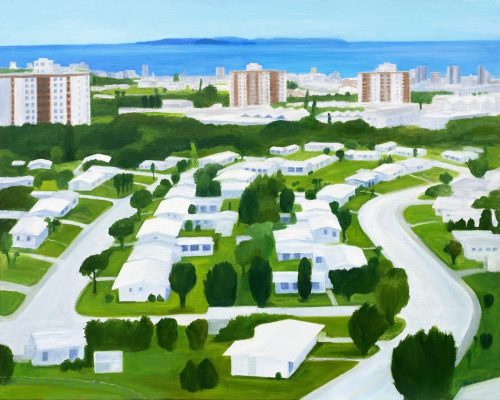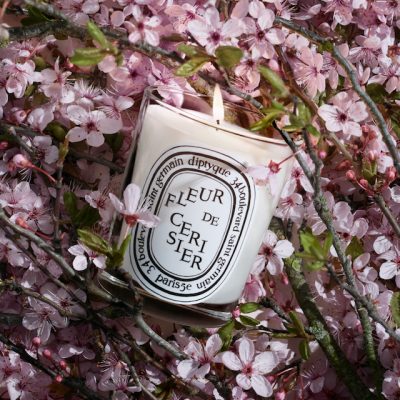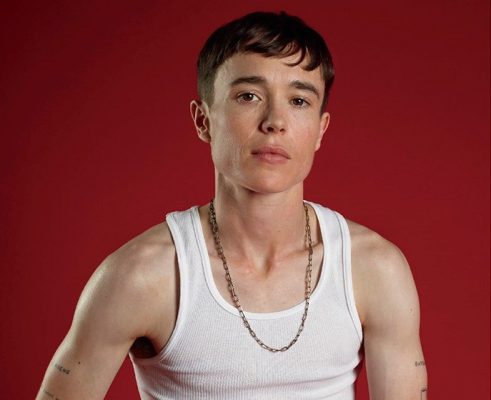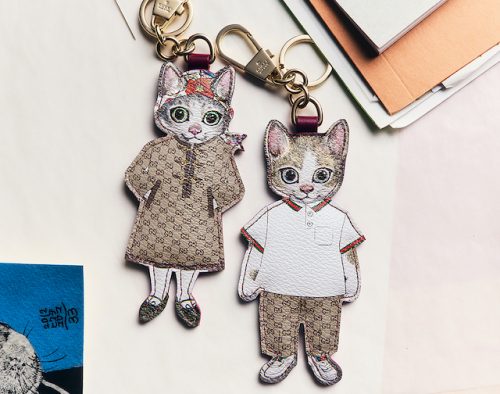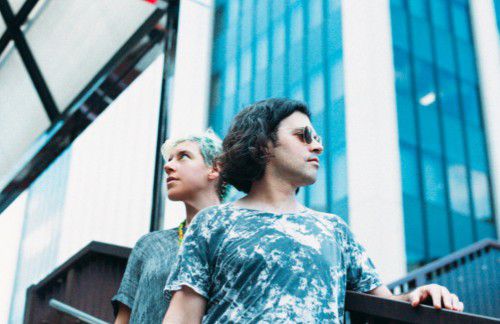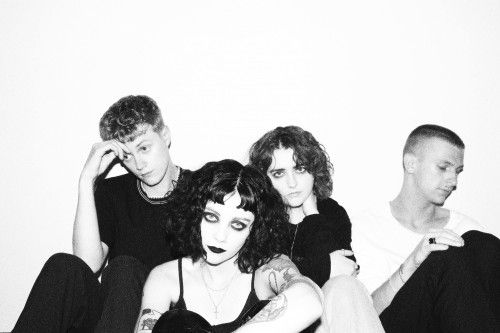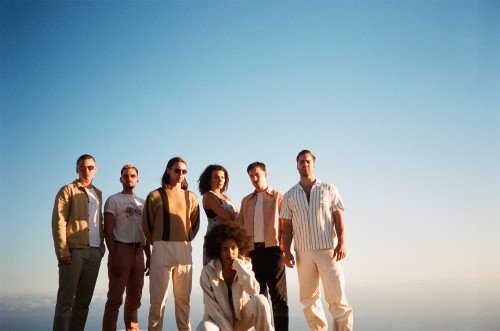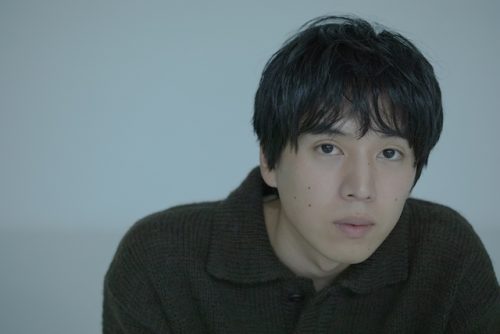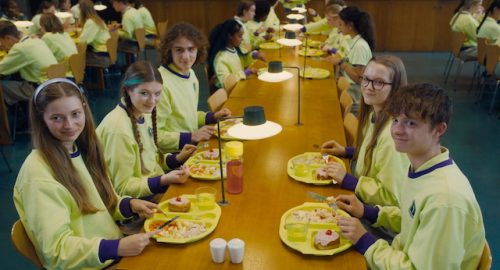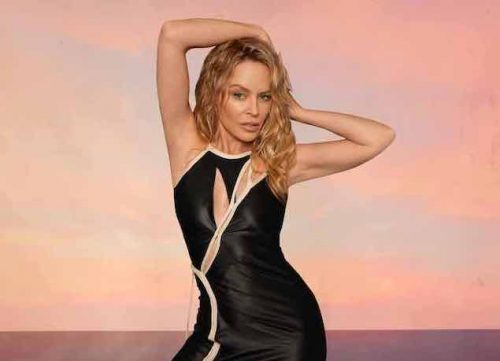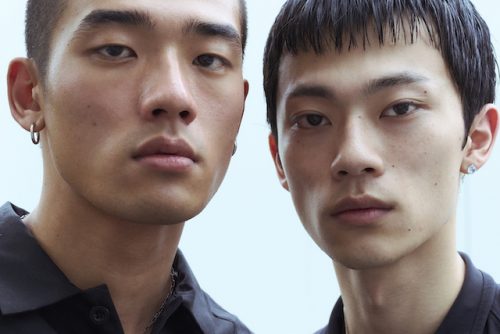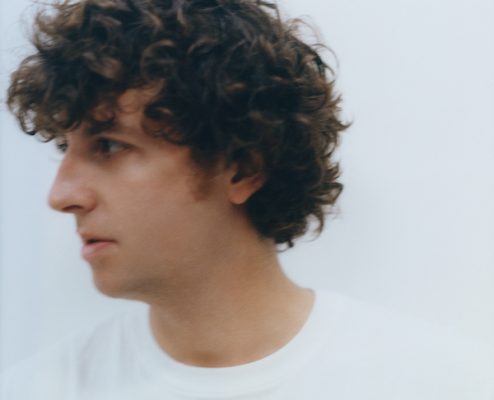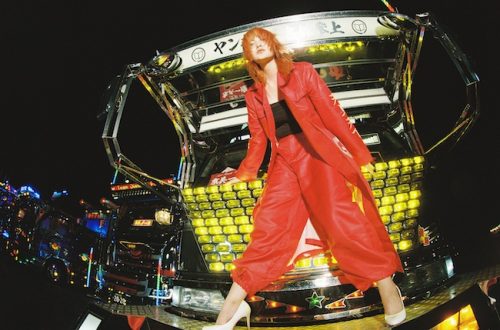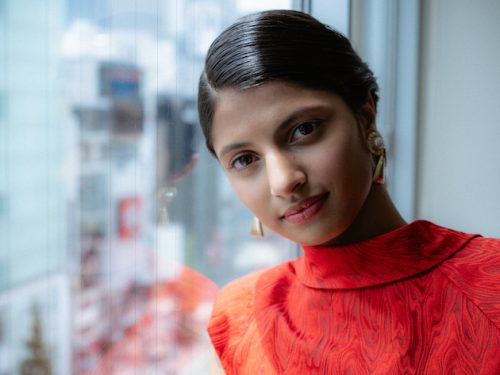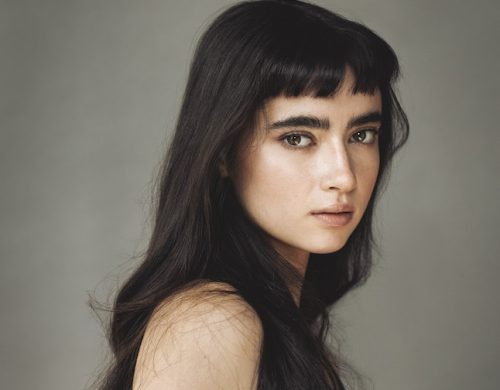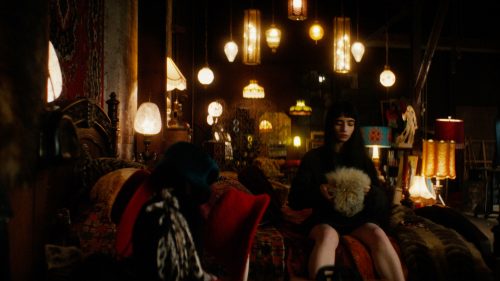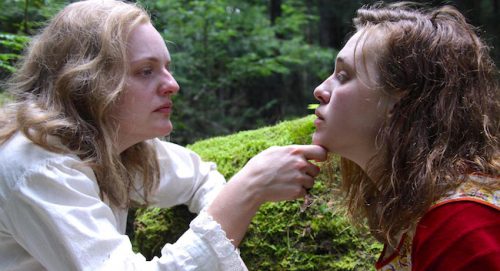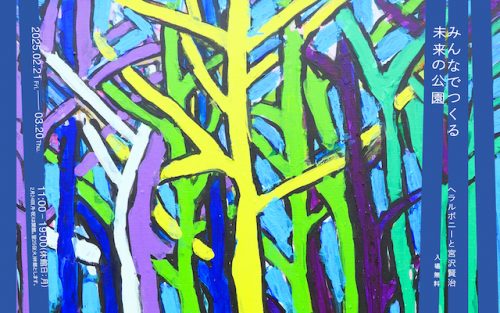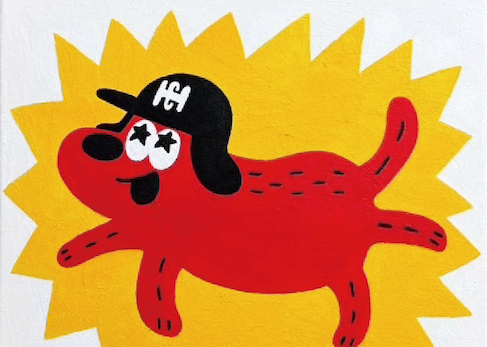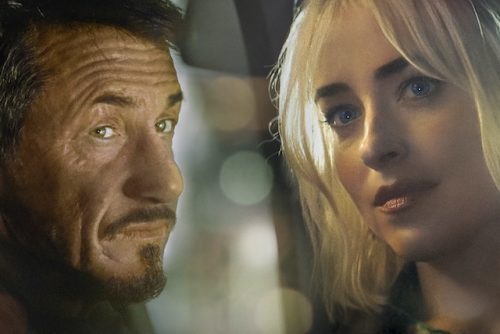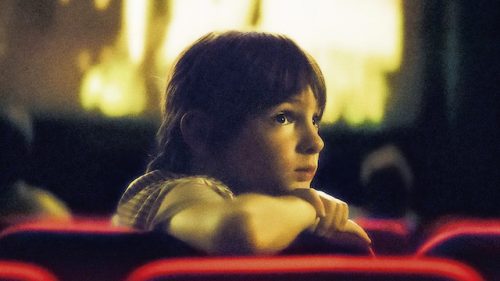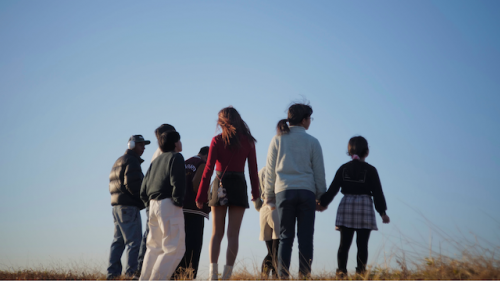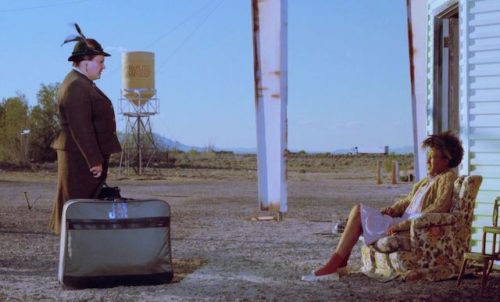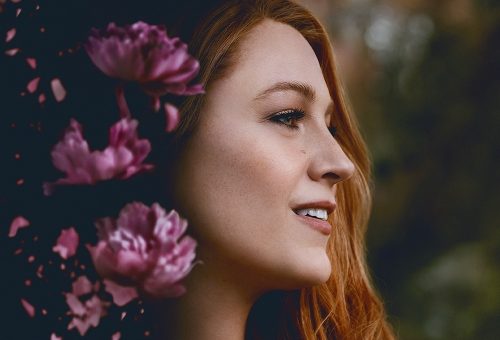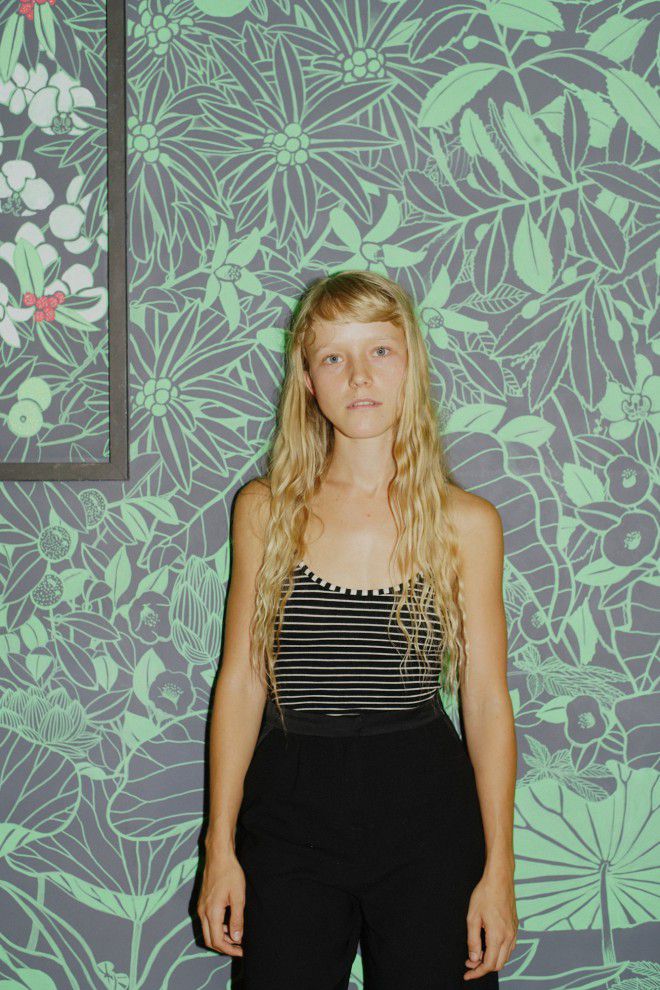
アリス・フィービー・ルーは、南アフリカのケープタウン出身のシンガー・ソングライター。現在はドイツのベルリンを拠点に活動していて、これまでに2枚のアルバムと2枚のEPを発表している。2年前にリリースされたデビュー・アルバム『オービット』は、素朴で美しい歌声をのせたブルージーな演奏、そして余韻を含んだドリーミーなアトモスフィアが魅力だったが、最新曲の“She”(※昨年オスカーで「Best Original Song」にノミネートされた)ではトライバル風のダンス・ポップを披露。先日行われた初めてのジャパン・ツアーでも、オーセンティックな弾き語りの佇まいと、エレクトロニックを交えたモダンな身のこなしとの間を揺れ動くようなパフォーマンスが魅力的だった。彼女が音楽を始めた背景、これまでのキャリア、さらに制作中というニュー・アルバムについて、来日中の本人に聞いてみた。
――現在はベルリンで活動されていますが、生まれ育ったのは南アフリカだと聞きました。
Alice「うん、アフリカのケープタウン出身で、すごく恵まれた環境に育ってるんだけど、16歳のときに昔からの夢を叶えるためにヨーロッパに移った。そのときにストリート・ミュージックやストリート・パフォーマンスに出会って」
――ヨーロッパのどこですか。
Alice「最初はパリに住んで、2ヶ月ぐらいノートルダムでファイアー・ダンスをしていた。そのとき、『あー、学校を卒業した後もお金の心配とかしないで、こうやって自分のパフォーマンスやスキルで稼いでヨーロッパを旅していけばいいんだ』って自信がついたのね。それでベルリンに移ってから音楽を始めたの……最初はそのあとすぐにケープタウンに戻るつもりだったんだけど。大学で歴史と文化人類学を勉強したかったから。ただ、ストリートでたくさん学ぶことがあったから、このままヨーロッパを旅し続けたいと思って、それで期間を決めずにベルリンに移ったら、結局6年もヨーロッパに居続けることになっちゃった」
――ヨーロッパに行く前は、曲を作ったり歌ったりはしてなかったんですか。
Alice「母親が趣味で音楽をやっていて、私も10代の頃ちょっとだけギターをやっていて。カヴァー・ソングを中心に弾いてたんだけど、それ以外に詩を書いたりもしていた。頭を動かすよりもダンスとか身体を動かすほうが好きだったから、そこまで本気ではやってなかったのね。でもベルリンに行ってから、これが自分の本当にやりたいことだったんだなって気づいた」
――音楽をやりたいって気持ちが芽生えたきっかけとかってあったんですか。
Alice「ベルリンに行って1年くらい、地下鉄のホームで地べたに座りながらギターを弾いて、『1日10ユーロ稼げたらいいな』っていう感じで生活してたんだけど、それがものすごく辛くてしんどくて。そしたら同じようにバスキングしているイスラエル人の2人の友達に会って、そのときに、人の目なんか気にしないで自分のやりたいことを表現することのほうが大事だよってことを教わったの」
——It is your first time in Japan and it could be a good opportunity for people to get to know you better. Would you mind introducing yourself a little bit to us?
Alice: So I was born in Cape town and I am quite lucky to have grown up in this nice environment. I decided to leave for Europe when I was sixteen because it was just something I always wanted to do. And that is how I got to discover street music and performance. I stayed in France for two months at the beginning and that was when I joined a street music group and we danced in front of the Notre Dame for two months. And that was how I started. That gave me the confidence to know that I could rely on my skills as a performer financially and travel around Europe when I graduate from high school. I thought I was going to head back to my hometown and study history and anthropology, but I found myself learning a lot by performing on the streets and I wanted it to be continued. So I decided to move to Berlin. I didn’t know how long I was going to stay there and it ended up being the past six years of my life.
——Did you have any experience with songwriting or dancing before you went to Paris?
Alice: My mom plays music as a hobby. I played guitar when I was a teenager, mostly cover songs. I have also written some poems but it was never something that I focused on. I was more into dancing and intellectual things. But Berlin made me realized that music and performance is something I really want to do.
——What inspired you and made you feel like pursuing music?
Alice: I was playing in the subways, sitting on the floor like a beggar for ten years.
That’s what I have been doing. It was tough and I wasn’t happy. Then I met a group of Israelite musician who just got out of the army. They were doing the same thing just like me. I have learned a lot from them about not caring how others see me and focus on my own music.
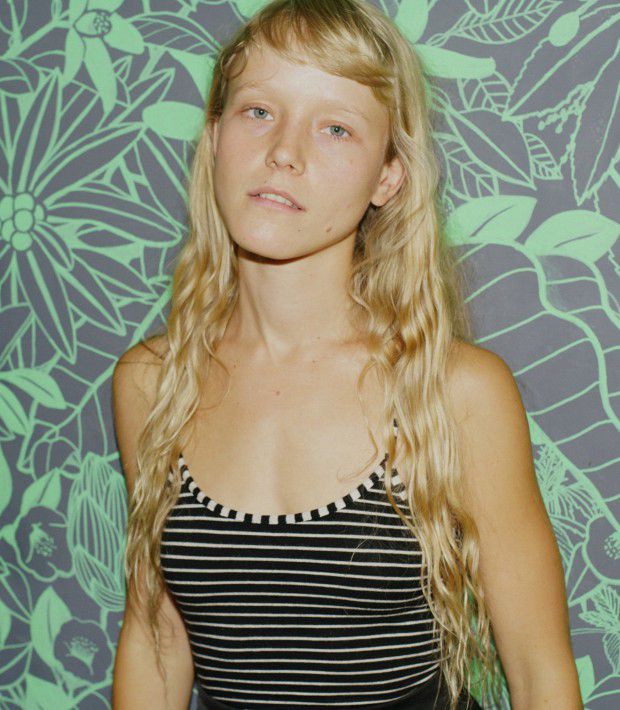
――曲を作り始めるときに参考にしたり影響を受けたりしたアーティストは誰かいましたか。
Alice「自分で曲を作り始めたときは、ニック・ドレイクとかメランコリックな曲が好きで、だから書いてる曲も暗かった。それで『いつも悲しい曲ばかりでごめんなさい』って人に謝ってばっかりだった。ただ、そのうち悲しい曲を必要としている人がいることに気がついて……いつでもみんなで楽しく笑い合ってるばかりが音楽じゃないって。それで、自分でもどんどん積極的に曲を書くようになった」
――そのとき、自分自身が抱えていた感情もメランコリックなものだったんですか。
Alice「ある意味、そう。自分自身の中にあるメランコリックな感情と向き合うようになったというか、いつでも幸せな感情ばかり貪欲に追いかけなくなったっていう意味で。要するに、大人になって悲しみという感情を受け止められるようになったの。自分は悲しくなってもいいんだっていう、悲しんでる自分を受け入れられるようになった」
――ちなみに、活動の拠点をベルリンに決めた理由はなんだったんですか。
Alice「いくつか理由があるんだけど、一番大きな理由としては、ベルリンを初めて訪れたときに、自分が今までに感じたことのないような自由な解放感を味わったこと。向こうに行ってすぐに友達もできたし、自分がコミュニティに受け入れられてるという感じがあった。それに、知らない土地だったけどすごく安心できたの。夜に普通に道を歩いてても大丈夫だし、地下鉄も安全だしね」
――ベルリンといえばテクノやクラブ・ミュージックが盛んですが、そこではどんな音楽を吸収されていたのでしょうか。
Alice「それまでクラブ・ミュージックとかエレクトロニック・ミュージックって全然好きじゃなかったんだけど、ベルリンに行ってダンス・カルチャーに出会って、それまでの“酔っ払ってドラッグやって、男性が女性を性的な対象として軽く扱ってる”イメージから、エレクトロニック・ミュージックはもっと親しみやすくて居心地のいいシーンなんだってことがわかった。ベルリンに行って初めて、クラブとかダンス・カルチャーとか、エレクトロニック・ミュージックっていいなあって思えるようになったのね。ただ、その一方でベルリンの音楽シーンってドラッグ・カルチャーとも深く関わってもいるから。そっちの方にのめり込みすぎちゃうパターンもたくさん見てきたし、自分はたまたまそっちに引きずられなくてラッキーだったなというか。自分の生まれ育った環境とか両親の教育とかもあるんでしょうけど、ベルリンのアートやクリエイション界隈では本当によくある話だから」
——Were there any artists or musicians who inspired you at that time?
Alice: During that time I was listening to a lot of melancholy music, like Nick Drake. I was also writing some melancholy music and I was being apologetic all the time, like “I am sorry that this is a sad song”. But then I realized that sad songs are also necessary for people. It is not all about performing and smiling to people and having a good time. It is also about going inside of their heart.
——Was it like a sad period for you?
Alice: In a way. I was getting more in touch with the melancholy. I wasn’t only looking for happiness. I was okay with being sad, like just sitting with it and allowing it to rise.
——You were also studying theatre before you left for Europe. Would you elaborate on that?
Alice: So I went to a school which allowed me to choose different subjects to study. It was like a college. We had a darkroom and so I studied photography. As well as history and theatre. I loved history a lot.
——Was there a specific reason that you chose Berlin?
Alice: Many reasons. But I guess we can sum it up with the one that Berlin was the first place where I went to that made me feel very alive. I almost felt like everything was possible for me. I made friends immediately and I felt very welcoming in the city. Also, being able to walk on the streets alone at night was great.
——Berlin is known for quite a lot of genres of music. Which one you liked the most?
Alice: I have never liked club music or electronic music before Berlin. But the vibe at Berlin wasn’t like how I imagined it to be. It was kind of cozy and I think that was surprising to me. Berlin also have an intense drug culture and I think some of my friends went quite far down the road. I think that I am lucky to be able to stay away from it. Maybe it was because of my upbringing. But that can easily happen to a lot of creative people.
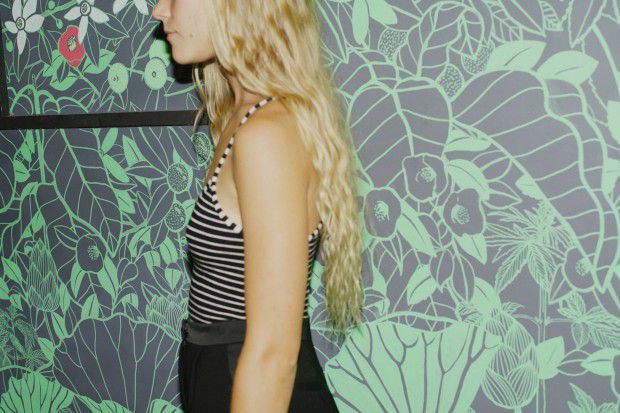
――ベルリンで発見したエレクトロニック・ミュージックのなかで、好きなアーティストはいますか。
Alice「自分はバキバキのエレクトロニック・ミュージックよりもライト寄りなのが好きで、女性アーティストのマーサ・ファン・ストラッテンとか。あと、フェザード・サンとかアシッド・パウリとか」
ーー『オービット』の曲は弾き語りが中心な感じですけど、新曲の“She”はダンサブルで、そのあたりの影響もあるのかな、と。
Alice「そうね。『オービット』は2年前のアルバムなんだけど、そこからバンドも進化してるし、自分の音楽も自分の内側よりも外側にエネルギーを放出する方向にベクトルが向いてきてるから……自分自身を解放するみたいな? だから、自分が今作ってる新曲やニュー・アルバムとか、新しいライヴ・パフォーマンスとかって、もっとエネルギッシュな雰囲気になってる」
――『オービット』に“Society”って曲がありますよね。社会の中で居場所を奪われた人たちや疎外された者たちに寄り添うような視点から描かれた歌詞、またMVもとても印象的だったのですが、あの曲はどのようにして生まれたんですか。
Alice「最初にストリートで歌い始めたころ、自分の人生を見失っている人たちをたくさん見てきたの。ホームレスの人たちだったり、アルコールやドラッグ中毒の人だったり、そういう人たちと私は同じ場を共有してたわけ。だから、普通の人とは違う視点から同じ景色を見てきたような感覚があって……。その人たちのバックグラウンドやストーリーについてより深く知るようになったし、理解もできるようになったのね。そこで社会の不平等についてすごく考えさせられるようになった。そうした社会のヒエラルキーは絶対にあってはならないし、どうにかしてそれを失くすための方法を見つけていかなくちゃって」
——Did you find any artist that you like?
Alice: I very much liked the music that are quite light. Martha van straaten and Feathered Sun, Acid Pauli. I guess those are my favs.
——Most of the songs on “Orbit “are rather slow but then “She” is condense and upbeat, is there any reason why you did that?
Alice: So “Orbit “have come out for two years already. The way I am making music is getting more energetic as it is how I feel. Less introspective. So now my new album and live performance are all a lot more energetic.
——So you music shows a perspective in which puts attention onto people who are suppressed and treated unequally. Is there any specific reason for that?
Alice: When I started playing on the streets, I had conversation with all kinds of people like the homeless and drug addicts. They were using the same space with me and I got to know more about them. It really changed my perception of hierarchy and how it should not exist.
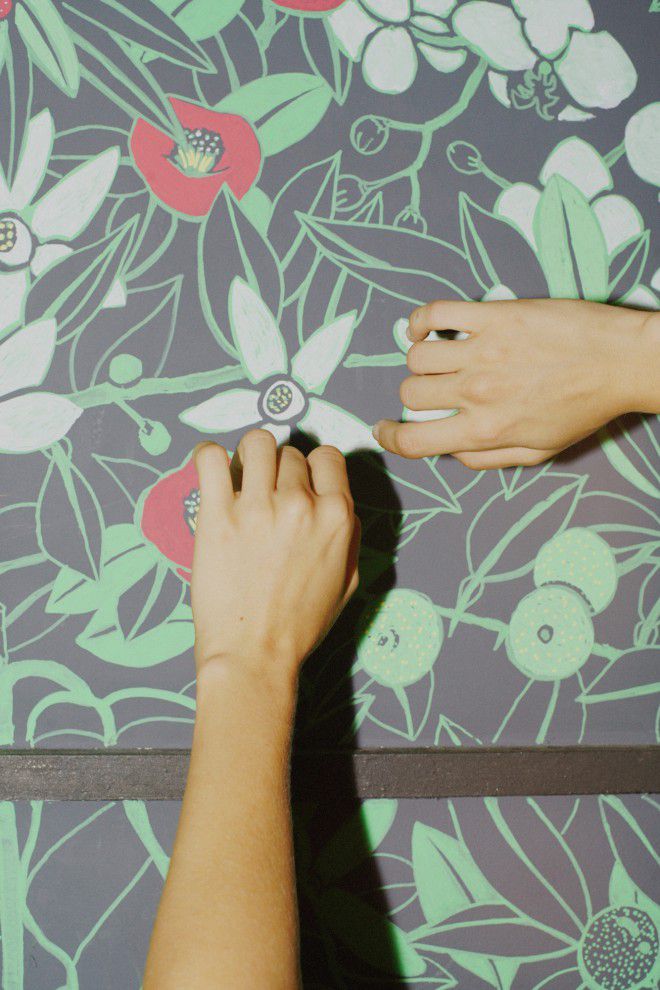
ーーそうした社会の外側にいる人々に対する気づきが芽生えたのには、ご自身が南アフリカを離れてパリやアムステルダムだったり、ベルリンにおいてつねに異邦人として暮らしてきたってことも関係してるのでは、と感じたんですが。
Alice「もちろん、それもある。とくに自分が海外で暮らし始めたころは、自分がその場所にいながらも、同時に傍観者であるみたいな感覚がつねにつきまとってたのね。自分が何者でもない感覚っていうのを経験してるの。お金もないし、泊まるところもないし、自分から代わりに差し出すものも全然なくて……。ただ、そこから数年のうちに、ただで家に泊めてもらったり、たくさんの友達ができたり、コミュニティのなかに受け入れてもらったり、それまでとはまったく逆の経験もさせてもらった。なので、そうしたいろんな場所で出会った人たちがリンクして繋がってるのも実感してる。最初は何もなかったのが、いつのまにかコミュニティの輪が広がっていたという感じ」
――その、ある種のジャーナリスティックな視点というのは、両親がドキュメンタリー作家だったってことからの影響も大きかったりするのでしょうか。
Alice「それは絶対にあるでしょうね。あと、学校で文化人類学を勉強してたことも大きかったと思う。それとあまりにも差別と不平等が横行している国に生まれ育ったっていうことも……両親がそうしたものに抗議する活動に関わってたからこそ、自分もそうした社会の矛盾に対して不合理を訴える姿勢が自然に培われていったんだと思う」
——Do you think that your identity as a traveling musician also helps to provide that perspective?
Alice: Sure. Especially in the beginning. The sense of being somewhere but as an observer was strong. I have experienced that when I didn’t have money or anything else to offer. On the other side, I became able to be offered with all kinds of things and make friends easily just after a few years. That gives me the opportunity to see from different angles of the society, which kind of put everyone on the same stage.
——Do you think maybe you were influenced by your parents who are documentary film makers?
Alice: Absolutely. And also the anthropology side of things. My parents were constantly fighting the injustice rather than just living in something privileged without paying attention to other’s conditions.
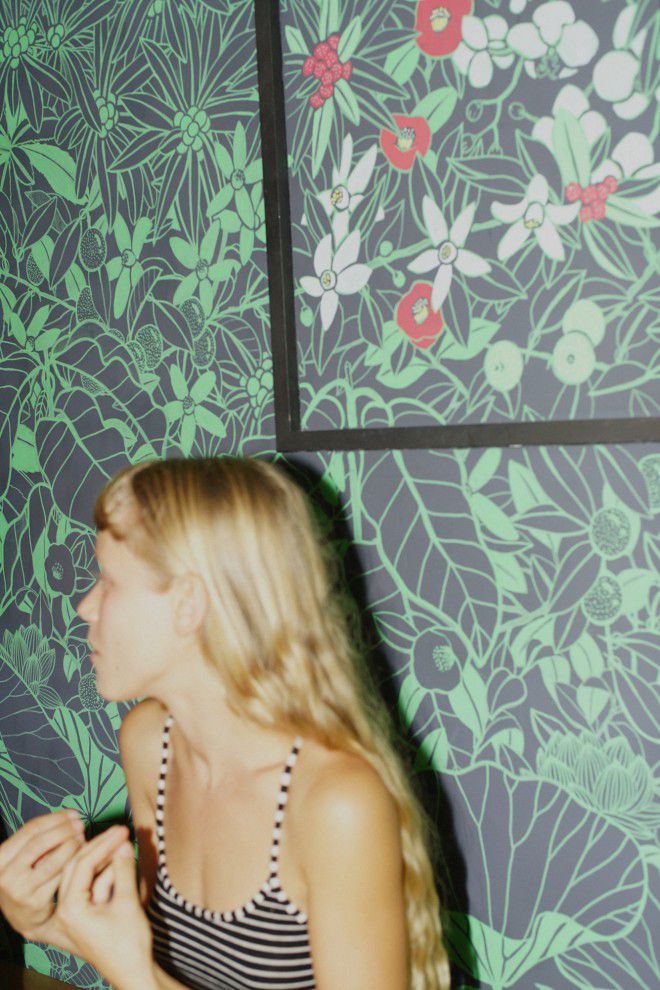
――自分の曲や歌うことを通じて、そうした阻害されたり弱い立場にいる人たちの声を代弁したい、という気持ちも強くあるのでしょうか。
Alice「今はそれほどでもないかな。前はそうだったけど。自分の発言や行動のすべてが強いメッセージを発してなくちゃいけない、みたいな。ただ、ここ何年かで自分のソングライティングのスタイルも変化して、今はただ自分の曲から何かしら感じてほしいというだけ。それが曲を聴いた人の感情と共鳴し合うといいな。誰だって自分自身の感情なりストーリーを生きているわけだから」
ーーそうですね。あなたの歌や音楽がこれからどう変わっていくのか、とても楽しみです。では最後に、いま制作中というニュー・アルバムについて教えてもらえますか。
Alice「去年1年間のうちにバンドとしてすごく成長したのね。演奏しててすごく楽しいし、表現力もだいぶ進化してきたし、それが自分の曲作りにもものすごく影響してるの。(ニュー・アルバムは)すごくライヴ感のあるアルバムで、実際、ライヴ録音してる音もたくさん入ってる。レコーディングをしたのはカリフォルニアで、海の見えるすごく美しい環境で……ちなみに、プロデューサーはデヴェンドラ・バンハートの作品を手がけたことで知られるノア・ジョージソンで、本当に素晴らしい人。自分のサウンドを押しつけるんじゃなくて、アーティスト自身の音楽を丸ごと受け止めて、さらにその人の個性を伸ばしてくれるようなプロデューサーなの」
――楽しみにしてます。
Alice「私も(笑)」
――今後の活動は、ベルリンだけに留まらないような気がしてるんですけど。
Alice「私もそう思う(笑)。今だってこうしてあちこち飛び回ってるしね(笑)」
——Do you have the intention of speaking for other people’s mind through your own creative process?
Alice: Not so much. I used to want my songs to filled with profound critical meanings, but over the years I have found that my songwriting styles changed to a place where I just want people to feel something. It can be everything and relatable but everyone has different case.
——Would you tell us about your plan for the next album?
Alice: So during last year my band have evolved a lot to a place where we are allowed to play a lot of fun things and to make expressions. That changed the way how my album would be. We recorded some parts live and so the sounds are raw. It was recorded in California, we were just facing the sea. The producer was Noah Georgeson, who is an amazing person. He brought out our characteristics from the music.
photography Satomi Yamauchi
text Junnosuke Amai
edit Ryoko Kuwahara
special thanks TurnTable http://turntable.jp

Alice Phoebe Lou『Orbit』
Now on Sale
(AWDR/LR2 X TUFF BEATS)
[収録曲]
1.Girl On An Island 2.Society 3.Red 4.Take Flight 5.Haruki
6.Walking In The Garden 7.Amsterdam 8.Orbit 9.The City Sleeps 10.She[Bonus Track]
https://www.amazon.co.jp/Orbit-Alice-Phoebe-Lou/dp/B07CLPHZ3M
Alice Phoebe Lou
ベルリンのストリートでライヴ演奏をしながらブルージーなフォーク・サウンドを発展させたサウンド、偽りない歌詞と素朴で美しい声で、パフォーマンス動画が脅威の再生数。世界が注目する南アフリカ出身、ベルリンで活動するSSW|Alice Phoebe Lou(アリス フィービー ルー)。ケープタウンとベルリン録音。才能ある南アフリカとヨーロッパのミュージシャンが多数参加したデビュー・アルバム『Orbit』。ドイツ・レコード批評家賞にて、ベスト・フィメール・アーティストにノミネートされ、いくつかのテレビ番組で紹介された『Orbit』は、ソウル、ブルース、ジャズが複雑に織り込まれた精緻なモザイク模様とでもいうべきものである。日本盤には、解説、歌詞対訳に加え、2018年にシングル・リリースされている「She」を追加収録。
Website:https://www.alicephoebelou.com




